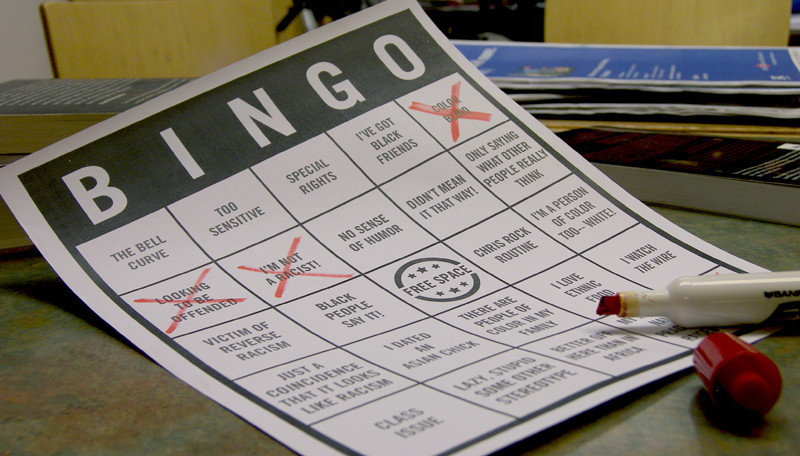Time to acknowledge privilege
White privilege exists whether you choose to see it or not
It took me a long time to come to terms with the concept of white privilege.
Maybe it was a lack of understanding or of education. Maybe it was the internalized feelings of guilt and fear that I wasn’t ready to acknowledge.
The reality of the existence of white privilege is a hard one to accept when you’ve been taught all your life that racism means individual, deliberate and malicious acts toward people of a different race.
In the imaginary universe where racism consists only of individual incidents, to accept the existence of white privilege is to accept one’s own deliberate participation in racism.
It was only when I understood that racism is a system of oppression that I understood that it is possible to benefit from it unintentionally, and from there I found myself able to take responsibility for acknowledging my privilege and to begin to actively work against the system.
Whether I like it or not, there are countless ways in which my life has been made easier because I am white.
I can be confident that when applying for an apartment or a mortgage, I will not be turned down because of my skin colour.
When applying for a job, I know that my skin colour will not work against me.
When I walk down the street I don’t feel like people are judging me and making assumptions about me based on my skin colour.
When I turn on the TV, I mostly see people who look like me, and the publications I read are mostly written by people who look like me.
I can make a mistake and not have to worry that people will chalk it up to a stereotype about my race.
The majority of people in my government and those who occupy the majority of positions of wealth and power in society look like me.
This is the crux of white privilege: I don’t intentionally rely on my race to give me a leg up in life, but the racist system in which I live does that for me regardless.
These privileges I’ve been granted are wholly unearned and undeserved - and, unfortunately, when I am privileged it means that others are oppressed.
Denying the existence of white privilege is to deny the daily obstacles faced by people of colour.
“ Whether I like it or not, there are countless ways in which my life has been made easier because I am white.
There’s a well-known interview in which African-American actor Morgan Freeman said that the solution to racism is to, “Stop talking about it.”
Many white people I’ve met are fond of this statement for obvious reasons; it supports the very narrow mainstream dogma that rampant racism is a thing of the past, perpetuated nowadays only by a handful of individual bad people - and if we just pretend hard enough that the social construct of race doesn’t exist, we really can make it disappear for good.
However, pretending racism doesn’t exist is not going to make it disappear.
Denial of racism, while easy and convenient, is, inadvertently, a form of support for it.
If you don’t believe in something you can’t fight against it, and your acceptance or denial of it doesn’t change the fact that, as a privileged white person, you’re still knowingly or unknowingly benefiting from it.
Pretending that you “don’t see race” is a convenient way of saying you’d rather not face the tough and unpleasant reality of the ways in which people of different skin colours are divided along lines of class and power.
The truth is that you do see race.
It is impossible not to when you’ve been raised in a racist society and the stereotypes about people who look different than you have been fostered in you since birth.
You may not agree with those stereotypes. You may find them offensive, problematic, hurtful. But you are aware of them, and you can’t help seeing them.
I encourage every white person to become more aware every day of the many ways, big and small, in which the colour of their skin gives them an undeserved advantage in life.
One cannot fight against something until one acknowledges its existence. We will not overcome racism until we have smashed the system that enforces it and we absolutely cannot begin to accomplish this monumental task until we have accomplished the simple one of accepting the very real ways in which racism impacts our daily lives.
It is not easy, but it is worthwhile, and it is ultimately liberating.
Katerina Tefft is a fourth-year honours politics student at the University of Winnipeg and The Uniter’s comments editor.
Published in Volume 67, Number 5 of The Uniter (October 3, 2012)








